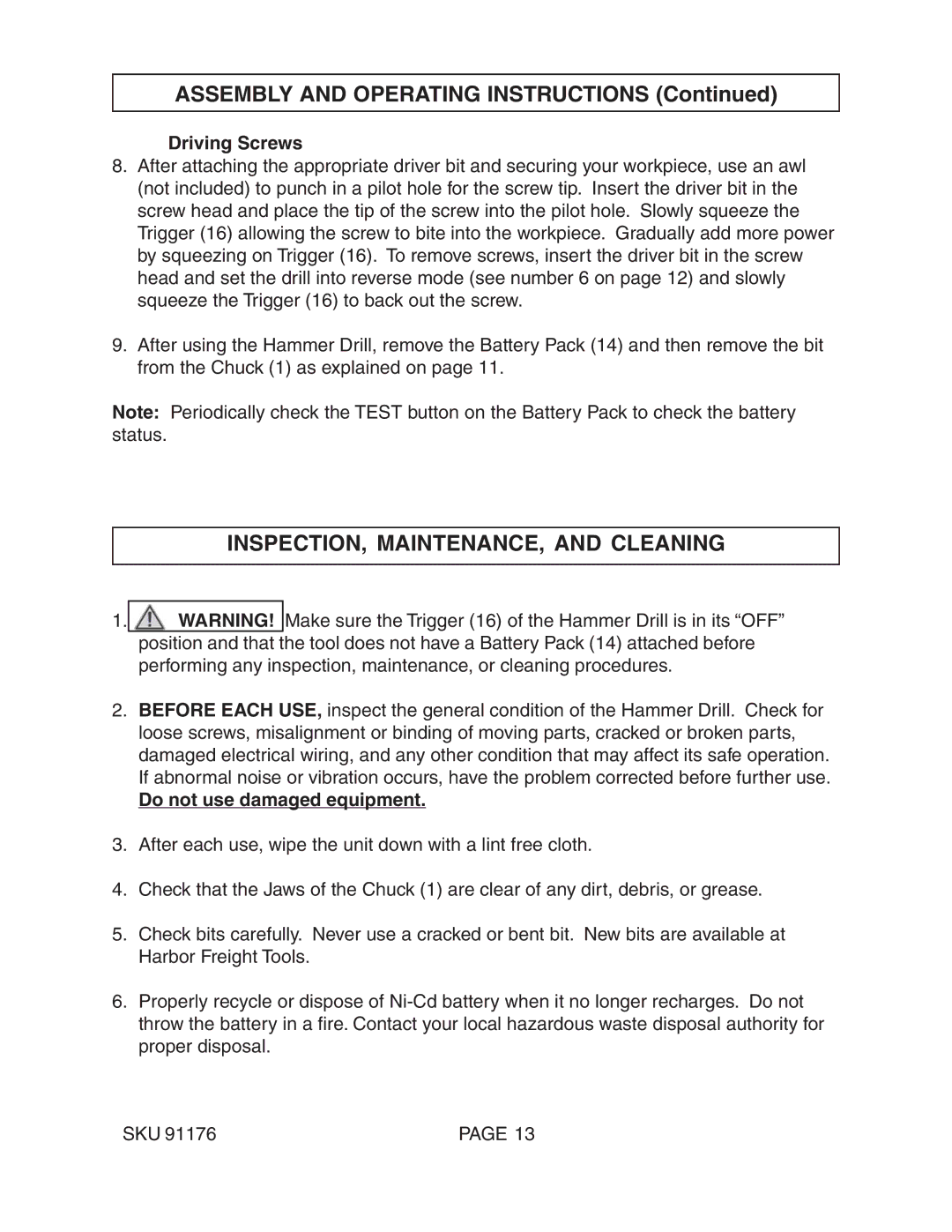
ASSEMBLY AND OPERATING INSTRUCTIONS (Continued)
Driving Screws
8.After attaching the appropriate driver bit and securing your workpiece, use an awl (not included) to punch in a pilot hole for the screw tip. Insert the driver bit in the screw head and place the tip of the screw into the pilot hole. Slowly squeeze the Trigger (16) allowing the screw to bite into the workpiece. Gradually add more power by squeezing on Trigger (16). To remove screws, insert the driver bit in the screw head and set the drill into reverse mode (see number 6 on page 12) and slowly squeeze the Trigger (16) to back out the screw.
9.After using the Hammer Drill, remove the Battery Pack (14) and then remove the bit from the Chuck (1) as explained on page 11.
Note: Periodically check the TEST button on the Battery Pack to check the battery status.
INSPECTION, MAINTENANCE, AND CLEANING
1.![]()
![]() WARNING! Make sure the Trigger (16) of the Hammer Drill is in its “OFF” position and that the tool does not have a Battery Pack (14) attached before performing any inspection, maintenance, or cleaning procedures.
WARNING! Make sure the Trigger (16) of the Hammer Drill is in its “OFF” position and that the tool does not have a Battery Pack (14) attached before performing any inspection, maintenance, or cleaning procedures.
2.BEFORE EACH USE, inspect the general condition of the Hammer Drill. Check for loose screws, misalignment or binding of moving parts, cracked or broken parts, damaged electrical wiring, and any other condition that may affect its safe operation. If abnormal noise or vibration occurs, have the problem corrected before further use.
Do not use damaged equipment.
3.After each use, wipe the unit down with a lint free cloth.
4.Check that the Jaws of the Chuck (1) are clear of any dirt, debris, or grease.
5.Check bits carefully. Never use a cracked or bent bit. New bits are available at Harbor Freight Tools.
6.Properly recycle or dispose of
SKU 91176 | PAGE 13 |
